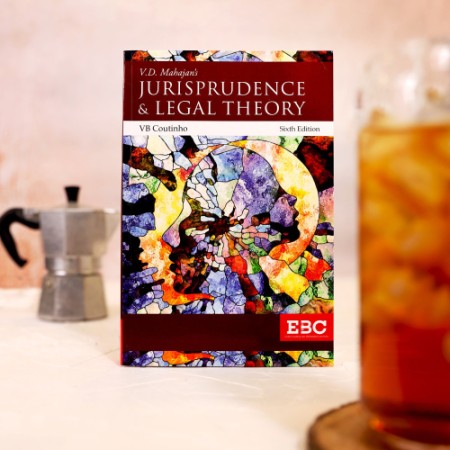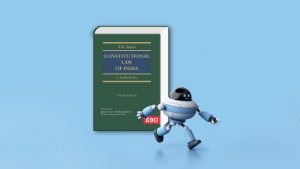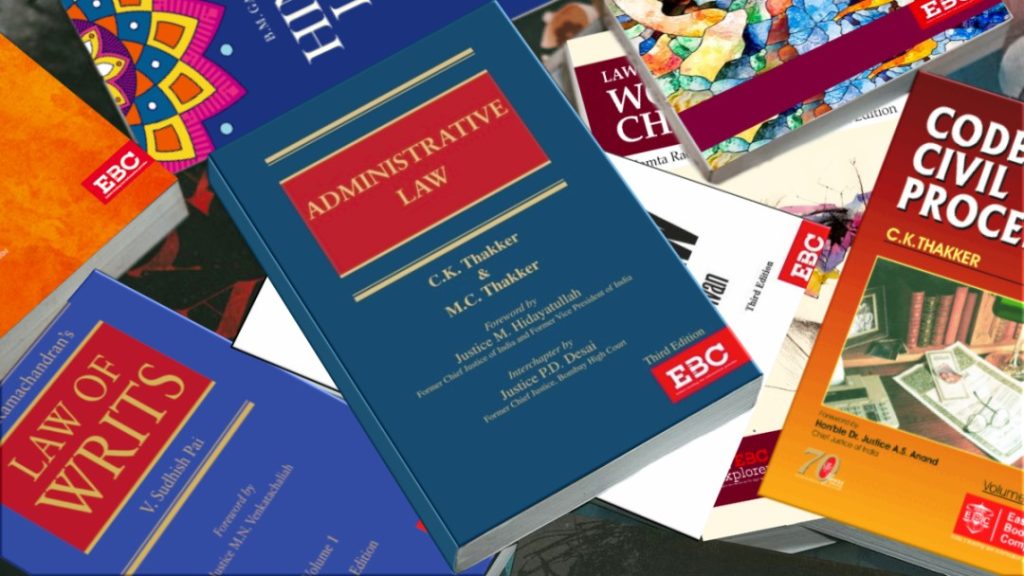
Explore the most sought-after legal books that professionals and students trust across India. These top 10 bestselling titles on EBC Webstore combine expert insights with practical guidance for every stage of your legal journey.
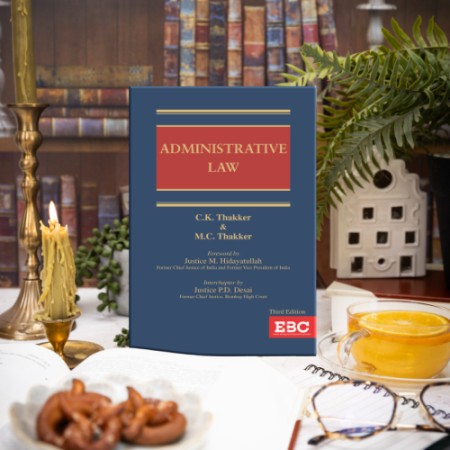
Authored by Justice C.K. Thakker, this authoritative text offers clear insight into delegated legislation, natural justice, tribunals, judicial review, legitimate expectation, proportionality, and State accountability. The latest edition covers key Supreme Court rulings, including Royer Mathew v. South Indian Bank Ltd., highlighting evolving doctrines of fairness and separation of powers. A perfect blend of judicial expertise and practical relevance, it explains writ jurisdiction under Articles 226 and 227, making it indispensable for Judges, Lawyers, Academics, Administrative Officers, and Researchers.

Justice C.K. Thakker’s Code of Civil Procedure is a landmark, six-volume work offering authoritative and lucid analysis of civil procedure, including the CPC (Amendment) Acts of 1999 & 2002 and key Supreme Court, High Court, and English cases. Volumes 1–4 cover Sections 1–158 and Orders 1–21, Volume 5 covers Orders 22–37, and Volume 6 completes the set. With a foreword by Hon’ble Justice A.S. Anand and introduction by Hon’ble Justice S.B. Majmudar, this edition, updated till 2013, plus a consolidated Supplement Volume, is essential for judges, lawyers, academicians, and students seeking a complete reference on civil procedure.
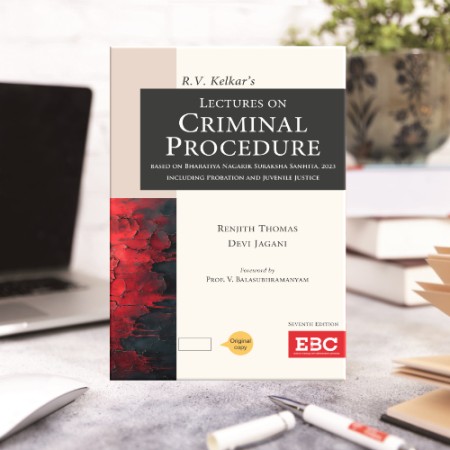
The 7th edition of R.V. Kelkar’s classic is thoroughly revised for the Bharatiya Nagarik Suraksha Sanhita, 2023, replacing the CrPC, 1973. It offers a clear, lecture-style approach with topic-wise explanations, practice questions, and crisp commentary on major reforms, including tech-driven procedures, plea bargaining, and arrest safeguards. Updated with the latest Supreme Court and High Court rulings, this edition is an indispensable resource for LLB and LLM students, faculty, advocates, judges, and researchers seeking a practical and comprehensive understanding of India’s evolving criminal justice system.
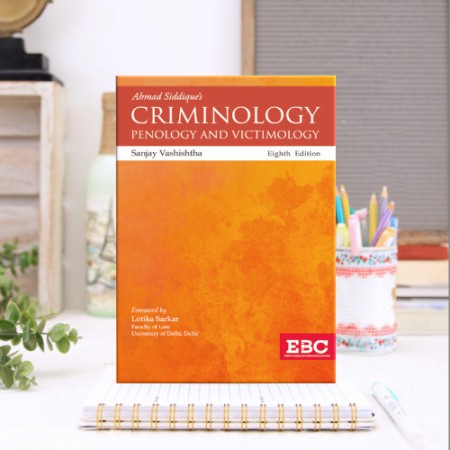
The 8th edition of Ahmad Siddique’s Criminology, Penology and Victimology has been thoroughly revised and updated to reflect the latest developments in the field. This authoritative work offers a comprehensive exploration of crime in India, from individualistic to environmental perspectives, covering issues such as organized crime, white-collar crime, sex offenses, drug abuse, and female criminality. The book also examines penology, including prison reforms, probation, and juvenile justice, and provides an updated discussion on victimology in light of global developments. Additionally, it analyzes the police system and legal framework, making it an indispensable guide for students, researchers, and practitioners of criminology and criminal justice.
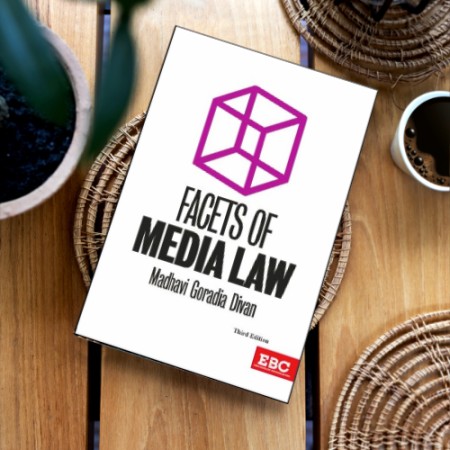
The third edition of Facets of Media Law has been thoroughly revised and updated to address the transformative impact of the digital media age. This edition introduces a new chapter on the Internet, explores updated issues around hate speech, and examines evolving trends in social media, including its effect on freedom of speech and the marketplace of ideas. It also analyzes key landmark cases, such as K.S. Puttaswamy v. Union of India (2017), Shreya Singhal v. Union of India (2015), and Anuradha Bhasin v. Union of India (2020), offering authoritative insights into contemporary media law. This edition is an indispensable resource for students, researchers, and legal practitioners navigating the rapidly changing landscape of media regulation and digital communication.
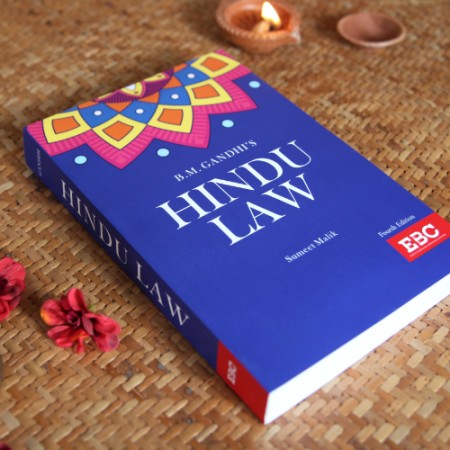
This scholarly work provides comprehensive coverage and in-depth analysis of Hindu law, encompassing both codified and uncodified aspects. It addresses key areas such as Hindu marriage, child marriage, divorce, maintenance, succession, adoption, and guardianship, while also discussing significant judicial pronouncements, including cases on a daughter’s right to coparcenary property, Hindu Undivided Family (HUF), and adoption. Written in clear and accessible language, the book integrates extensive case law references to explain every point and includes a detailed index for easy reference, making it an indispensable resource for students, practitioners, and researchers seeking a reliable guide to Hindu law.
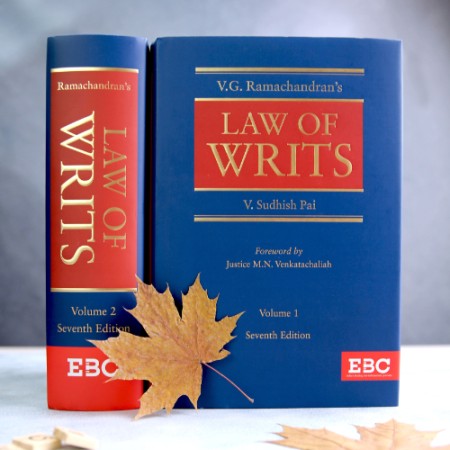
V.G. Ramachandran’s Law of Writs, in two volumes and revised by V. Sudhish Pai, is an authoritative and exhaustive commentary widely regarded as the leading work on writ jurisdiction. Every edition has been highly acclaimed, with the latest covering all important developments and case law since the previous edition. Volume I addresses judicial review and the general principles of writ jurisdiction, while Volume II covers specific writs, supervisory jurisdiction of High Courts, SLPs, constitutional amendments, and practice and procedure, including a new chapter on judicial review. Appendices provide updated bare texts of the Constitution of India, CPC, Supreme Court and High Court rules, PIL rules, and model writ petition forms. This seminal work is an indispensable resource for lawyers, judges, academicians, and scholars in India and abroad.
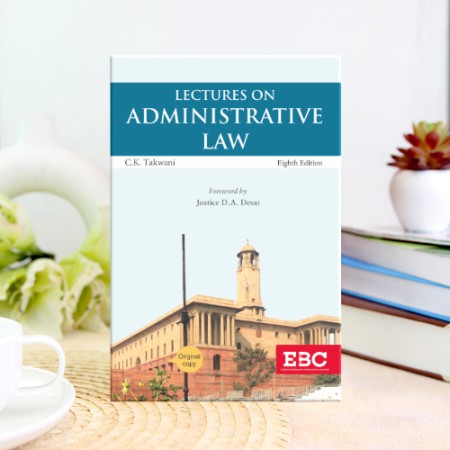
Lectures on Administrative Law by Justice C.K. Thakker (Takwani) is a highly acclaimed work widely used by law students and legal practitioners. The book presents the fundamental principles of administrative law as developed through judicial decisions, thoroughly examining natural justice, judicial review, and remedies with reference to key case law. The eighth edition incorporates the latest developments in Indian and international jurisprudence, covering significant judgments up to 2023, including Rajeev Suri v. DDA (2022) and State of Jharkhand v. Brahmputra Metallics Ltd. (2023), and adds new topics for enhanced comprehensiveness. Features such as Suggested Readings and a reorganized structure consolidating doctrines like proportionality, estoppel, and legitimate expectation make the work more accessible and methodical. An indispensable resource, it is ideal for LLB and LLM students, administrators, judges, advocates, and researchers seeking a thorough understanding of administrative law.
Justice K. Ramaswamy described jurisprudence as “the eye of the law, giving insight into the environment of which it is the expression.” Reflecting this vision, the new edition of V.D. Mahajan’s Jurisprudence & Legal Theory has been thoroughly revised, updated, and expanded with extensive Indian case law to provide a broad perspective on the subject. Written in clear and accessible language, the book covers essential topics such as the nature and scope of jurisprudence, legislation, precedent, custom, legal rights and duties, ownership, liability, and persons, while also introducing a new chapter on Feminist Movements. The work examines the sources of law, sovereignty, and administration of justice, and includes an exhaustive index and suggested readings for each chapter, making it an invaluable resource for students, researchers, and practitioners seeking a comprehensive understanding of legal theory.
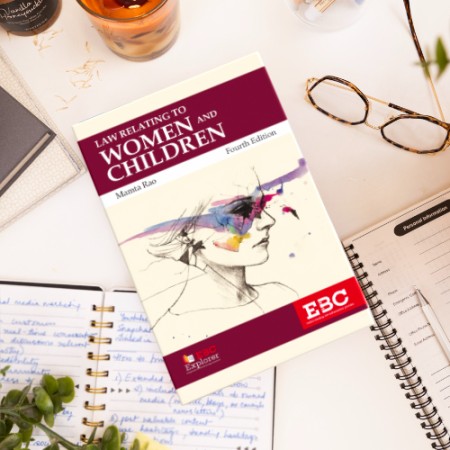
The fourth edition of Mamta Rao’s acclaimed work offers a well-researched and systematically organized study of legal issues affecting women and children. The book explores crimes against women, including rape, dowry deaths, female foeticide, workplace sexual harassment, and domestic violence, as well as issues like child labor, child abuse, and juvenile delinquency. This edition incorporates recent developments such as the Shayara Bano case on Triple Talaq, key legislations including the Right of Children to Free and Compulsory Education Act, 2009, POCSO Act, 2012, Criminal Law (Amendment) Act, 2013, Sexual Harassment of Women at Workplace Act, 2013, Juvenile Justice Act, 2015, and Maternity Benefit (Amendment) Act, 2017, and discusses landmark cases including the Nirbhaya case. It is an indispensable resource for LLB and LLM students, judicial officers, lawyers, NGOs, bureaucrats, and women’s rights activists seeking a comprehensive understanding of legal protections for women and children.









